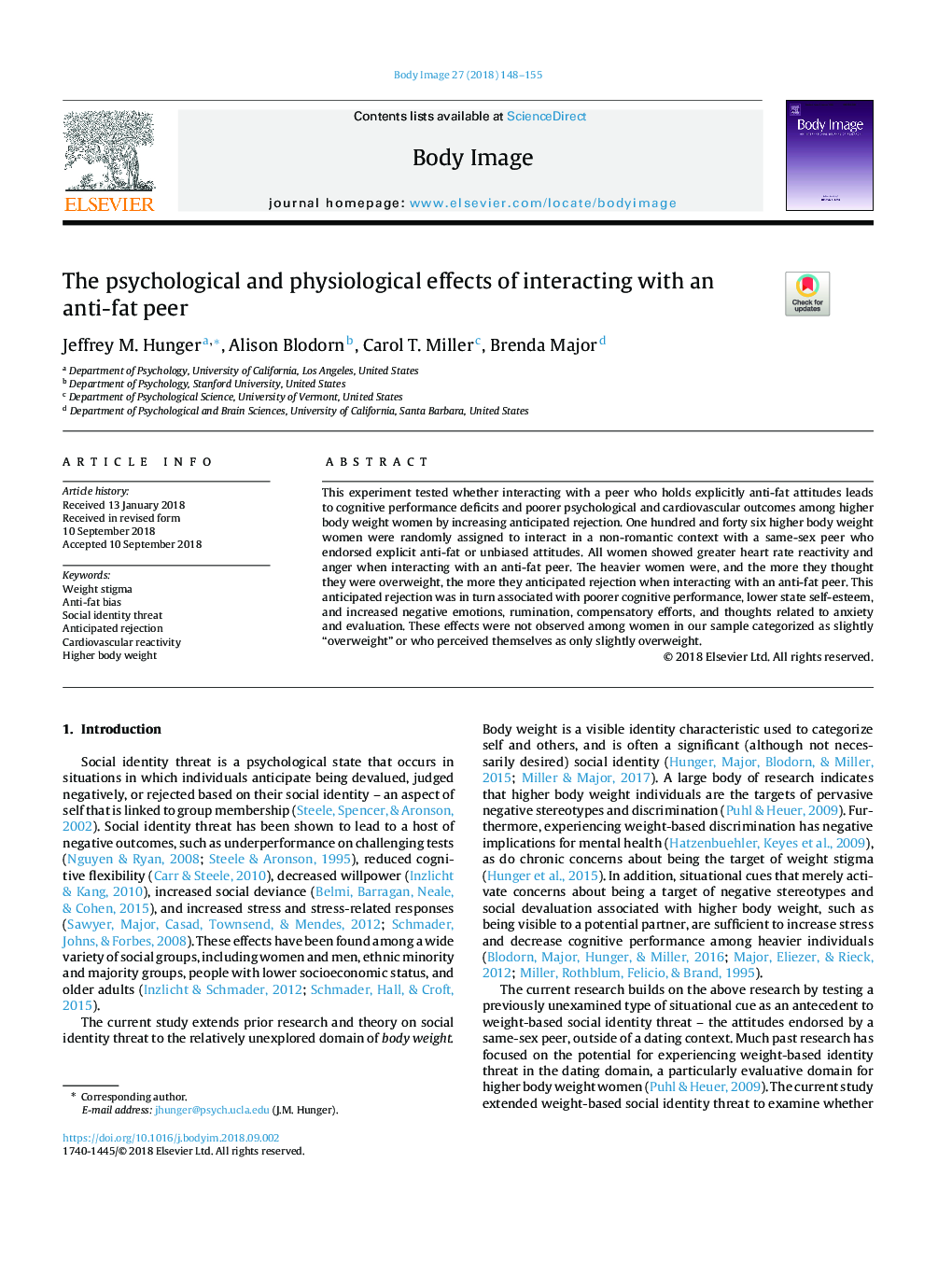| Article ID | Journal | Published Year | Pages | File Type |
|---|---|---|---|---|
| 11004457 | Body Image | 2018 | 8 Pages |
Abstract
This experiment tested whether interacting with a peer who holds explicitly anti-fat attitudes leads to cognitive performance deficits and poorer psychological and cardiovascular outcomes among higher body weight women by increasing anticipated rejection. One hundred and forty six higher body weight women were randomly assigned to interact in a non-romantic context with a same-sex peer who endorsed explicit anti-fat or unbiased attitudes. All women showed greater heart rate reactivity and anger when interacting with an anti-fat peer. The heavier women were, and the more they thought they were overweight, the more they anticipated rejection when interacting with an anti-fat peer. This anticipated rejection was in turn associated with poorer cognitive performance, lower state self-esteem, and increased negative emotions, rumination, compensatory efforts, and thoughts related to anxiety and evaluation. These effects were not observed among women in our sample categorized as slightly “overweight” or who perceived themselves as only slightly overweight.
Related Topics
Health Sciences
Medicine and Dentistry
Psychiatry and Mental Health
Authors
Jeffrey M. Hunger, Alison Blodorn, Carol T. Miller, Brenda Major,
